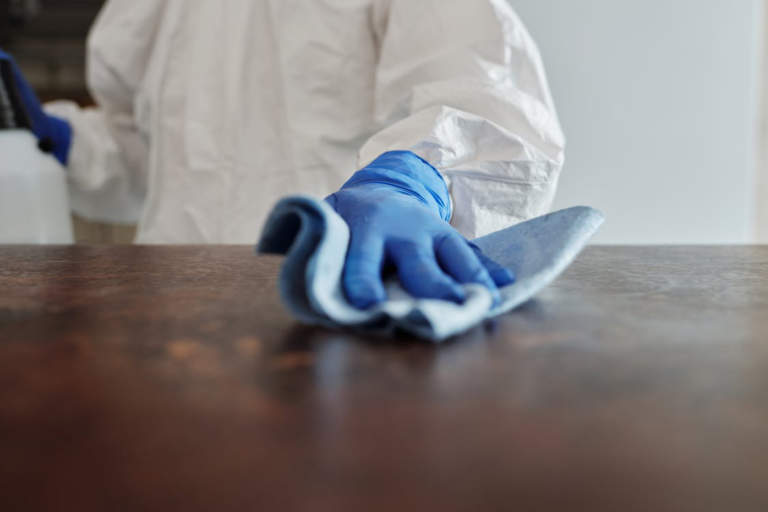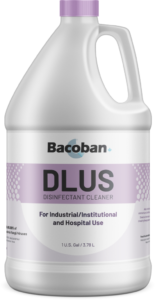Hospital-acquired infections are a genuine concern around the world, and government statistics show that 200,00 patients in Canada get infected every year while they’re in hospitals, receiving healthcare.
Given the highly contagious variants of the coronavirus pandemic, HAIs have a whole new meaning now, which is why hospital administrations need to pay extra attention to the hygiene conditions in their facilities.
For many hospitals, this isn’t just about having more rigorous cleaning and sanitizing schedules but also about investing in the most effective cleaning products.
What Government Guidelines Say About Maintaining Hospital Hygiene
Both WHO and Canada’s public health agency have extensive research on hygiene and infection prevention in hospitals.
Based on their research and data collection from around the world, WHO has devised standard precautions for hospitals that stress things like handwashing using plain soaps or antimicrobial agents and wearing gloves. WHO’s guidelines also mention hygiene-related details and guidelines for patient-care equipment, eye protection, bloodborne pathogens, and so on.
Canada’s public health agency’s guidelines mainly focus on hand hygiene in healthcare settings. The guidelines offer a comprehensive framework to create and implement effective hand hygiene-related policies and procedures in hospitals. This is crucial since hands are often the main source of contamination that leads to the spread of infection and disease.
Besides the federal guidelines, most Canadian provinces have their own guidelines and health standards as well. Therefore, it’s important to ensure that your health facility’s hygiene situation is always in line with not only the federal standards but also the provincial requirements.
Best Practices and Tips to Keep A Healthcare Facility Clean and Hygienic
Keeping a hospital clean is essential to ensure a healthy recovery for existing patients with already weak immune systems, without them succumbing to new infections from the hospital itself. Moreover, hygienic healthcare facilities are less likely to make visitors, doctors, and other staff members sick.
While keeping up hospital hygiene can be a challenge, it’s definitely doable with the right housekeeping practices and sanitation efforts.
Here are a few simple tips that should help.
Rigorous Cleaning and Disinfecting Routines

In general, all spaces that are frequented by a large number of people should have comprehensive cleaning schedules that outline cleaning-related tasks that need to be carried out daily, weekly, and monthly. And while this is important for most commercial and industrial spaces, it’s most important in health care facilities.
Hospitals need to be cleaned and disinfected multiple times throughout the day. Merely cleaning is not enough since regular cleaning products can get rid of grime and dirt, but they’ll still be behind bacteria which need to be tackled with a commercial disinfectant approved for hospital use.
Avoid Cross-Contamination at All Costs
Cross-contamination is a very real possibility in healthcare settings. This is why medical waste must be disposed of quickly and correctly before germs have a chance to spread.
Besides quick waste disposal, constant cleaning and disinfecting also take care of cross-contamination. However, it’s important to dispose of or properly sanitize cleaning material like mops and washcloths that have been used to clean contaminated areas.
Using disinfectant sprays can be pretty helpful since they help to get rid of airborne bacteria when used properly.
Correct PPE Protocol Is A Must When Cleaning

Bacteria and airborne viruses can be spread by perfectly healthy people too. This is why the housekeeping staff needs to wear personal protective equipment when cleaning in a healthcare facility. This would not only protect them from catching a virus, but it would also help limit contamination.
But this would only work if the cleaning staff knew exactly where to remove their PPE and use it correctly and dispose of gloves and other equipment that needed to be disposed of.
Cleaning Should Cover All Areas of The Hospital
Typically, hospital administrations might think about gearing their cleaning efforts toward the most crowded areas, but less visited areas in a hospital are just as vulnerable.
Even if they are less frequented, keeping them unclean is the equivalent of letting them turn into breeding grounds for bacteria and other harmful microorganisms. So, make sure the cleaning routines cover every nook and cranny of the facility.
And while you’re at it, it’s crucial to remember that the high-touch surfaces like door handles, light switches, bathroom fixtures, and bedrails need extra focus.
Special Training in Healthcare Hygiene Protocols
It should be kept in mind that cleaning a hospital is very different from cleaning a residential space or even other commercial spaces. There are far more airborne bacteria and risks of infections in a hospital than in any other space. So, the housekeeping staff for a hospital should ideally be trained accordingly.
The staff should be educated on the risks and the correct methods to counter them. They should also be counselled on the importance of sanitizing and disinfecting their cleaning tools and equipment.
The Supply Closet Should Always Be Well-Stocked
A healthcare facility can really not run out of cleaning supplies and solutions or disinfectants. So, make sure your hospital’s supply closets are always well-stocked with the required products.
This may need close supervision since healthcare facilities tend to be bigger than most other spaces, and they require extra cleaning efforts and, therefore, a greater quantity of products. But there are only so many products you can house, so it’s best to invest in the ones that offer the most value for money.
What Kind of Cleaning Products Should Hospitals Invest In?

Besides investing in high-quality cleaning products for a healthcare facility, finding locally manufactured products is also important. This is important because this way, you can ensure a stable supply throughout the year. Moreover, local products are more cost-effective, which will allow you to buy in bulk without putting a strain on the hospital’s housekeeping budget.
Additionally, make sure to choose approved products for hospitals and healthcare facilities, like the ones available at Bacoban.
We have high-quality cleaners and disinfecting solutions, as well as cleaning sprays and wipes.
Contact us to learn more and place an order.

